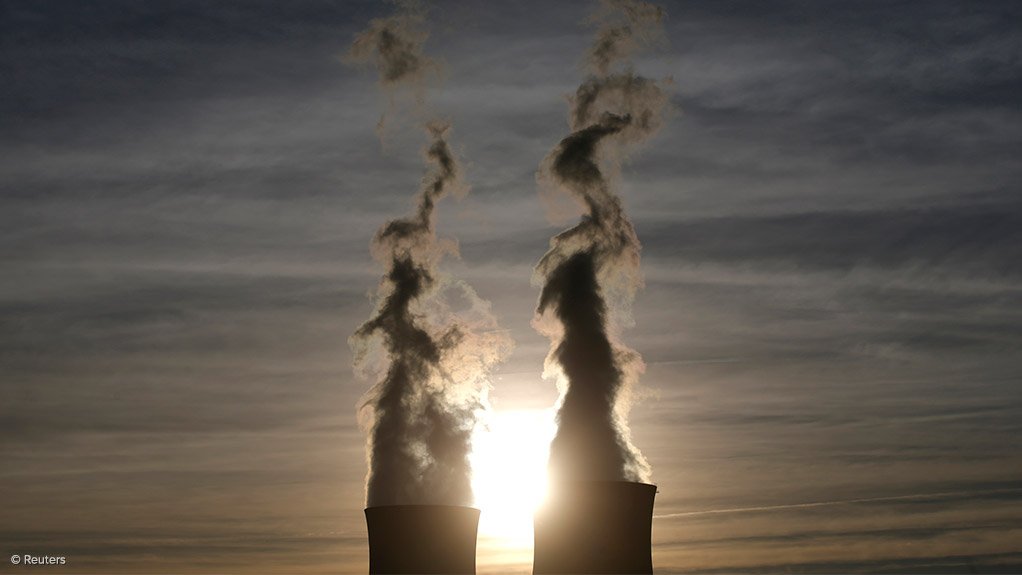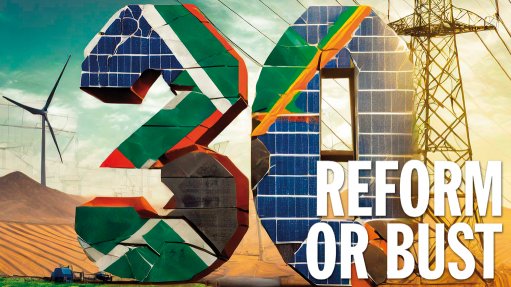Outa warns state of disaster regulations could result in 'unaffordable' generation contracts


Outa is concerned that the regulations will result in the procurement of expensive nuclear or powership contracts.
Photo by Reuters
Civil society organisation the Organisation Undoing Tax Abuse (Outa) says the newly published state of disaster regulations appear to be intended to allow a quick contract with floating power company Karpowership by fast-tracking or bypassing environmental authorisations, procurement rules, public participation and even legal challenges.
“Outa is determined to continue our legal challenge to review the declaration of a national state of disaster and our challenge to the issuing of the Karpowerships’ generation licences by the National Energy Regulator of South Africa (Nersa). Both these matters are before court.
“The regulations confirm Outa’s concerns that the state of disaster will be used to remove regulatory provisions and oversight to enable the fast-tracking of unaffordable generation contracts," it avers.
President Cyril Ramaphosa, during his State of the Nation speech, announced a state of disaster aimed at overcoming the continuous rolling blackouts imposed by State-owned power utility Eskom over the past six months. Eskom remains deeply mired in allegations of corruption and is operationally weak.
Outa says a key aspect of the regulations is to enable the connection of unspecified new generation power.
“We are concerned that the Karpowership contract, strongly promoted by Minister of Mineral Resources and Energy Gwede Mantashe in the face of civil society opposition, will now be fast-tracked through the system without the legally required due process. We are also concerned at the possibility that the regulations might be used to fast-track new nuclear power, also without the safeguards of existing law.
“These are the projects that ran into strong public opposition and should be subjected to careful, public scrutiny and meaningful public consultation, not enabled through late-night regulations under the guise of a so-called national disaster that has been 15 years in the making,” the organisation emphasises.
Outa highlights regulations that are of particular concern include Regulation 5 (1) (d) that enables “implementing measures to remove impediments to the development or construction of new generation capacity”, while Regulation 5 (1) (e) enables “streamlining and expediting application and decision-making procedures for regulatory processes related to energy generation projects, including designating a single department or institution to receive and coordinate the processing of applications or stipulating maximum timeframes for decision-making”.
Further, Regulation 5 (1) (i) enables “excluding upgrades, refurbishments, adjustments and repairs of existing energy infrastructure and existing generation, transmission and distribution facilities” from all environmental law, and Regulation 5 (1) (t) (3) permanently legalises all actions taken in terms of the regulations even after the state of disaster is lifted, Outa points out.
“The regulations effectively remove proper oversight, regulatory processes and public participation in decisions of enormous public importance and cost. This is the sign of a desperate government that seeks unfettered powers to pursue an agenda which is not in the public interest,” the civil organisation states.
South Africa has the examples of large coal-fired power stations Medupi and Kusile, where State capture, greed and mismanagement resulted in overspending on badly designed power stations, which have yet to deliver as promised, but which bankrupted Eskom and resulted in last week’s R254-billion bailout by taxpayers, it points out.
“Lowering the standards of good governance is a sure way to foster increased corruption,” it avers.
Further, the regulations give wide powers to all Ministers to “issue directions, as required, within his or her mandate”.
It is not clear why all Ministers would be granted these powers without a legal obligation to properly consult industry experts and Eskom itself, which are not mentioned in these regulations, Outa emphasises.
The regulations call on “all institutions within national, provincial and local spheres of government” to ensure “continuous operation” of health facilities, water infrastructure and other specified infrastructure and services “including by installing alternative energy sources or other measures”.
This is a wide authority for bankrupt and mismanaged organs of government to spend with profligacy by circumventing good governance processes, the organisation contends.
EXISTING LAWS
“Outa believes that much of what Cabinet says the regulations are intended to achieve could have been done under existing law. There was nothing to prevent municipalities and provinces from arranging generators or back-ups for hospitals and water and sanitation infrastructure. Eskom has bought electricity from neighbouring States for years.
“It is odd that the notion that different government departments and spheres of government must suddenly cooperate in terms of a state of disaster, while cooperative government is a principle already enshrined in our Constitution,” the organisation highlights.
“We would like Government to make use of all the existing laws and emergency procurement regulations that are already at their disposal, including the introduction of specialists and professionals to fulfil positions of leadership within Eskom, to address this growing crisis,” says Outa executive director advocate Stefanie Fick.
“In addition, we would like to see less political meddling or board interference in executive operational matters. The use of a state of disaster and these regulations is the last resort of a failed State,” she adds.
LEGAL CHALLENGES
Meanwhile, Outa's legal challenge to the state of disaster, filed on February 16, is due to be heard in the Pretoria High Court on an expedited basis. This arises from an agreement between the parties, which was made an order of court on February 28.
Under the terms of the agreement, Part A of Outa’s application, which is Outa’s request to interdict the state of disaster pending the hearing of the main application, was removed from the roll. Part B, which is Outa’s application for the court to review the decisions implementing the state of disaster, will be set down on the urgent roll as soon as possible.
“In terms of the order, the head of the National Disaster Management Centre and the Minister of Cooperative Governance and Traditional Affairs must by 14:00 on March 3, provide Outa with the record of all documents relating to their decisions and reasons for those decisions to classify the electricity crisis as a national disaster and declare the national state of disaster,” the organisation notes.
Additionally, on April 26, 2022, Outa filed an application for the review and setting aside of the decisions by Nersa to grant three Karpowership generation licences. Outa is asking the High Court to review and set aside Nersa’s decisions to award generation licences to the three Karpowership projects, and order Nersa to reconsider these decisions.
Further, on January 23, the organisation brought an application to compel Nersa to produce the full and unredacted record of its decision. Both this and the main application continue.
Although Nersa and Karpowership are opposing both applications, only Nersa has filed answering papers so far, Outa says.
Comments
Press Office
Announcements
What's On
Subscribe to improve your user experience...
Option 1 (equivalent of R125 a month):
Receive a weekly copy of Creamer Media's Engineering News & Mining Weekly magazine
(print copy for those in South Africa and e-magazine for those outside of South Africa)
Receive daily email newsletters
Access to full search results
Access archive of magazine back copies
Access to Projects in Progress
Access to ONE Research Report of your choice in PDF format
Option 2 (equivalent of R375 a month):
All benefits from Option 1
PLUS
Access to Creamer Media's Research Channel Africa for ALL Research Reports, in PDF format, on various industrial and mining sectors
including Electricity; Water; Energy Transition; Hydrogen; Roads, Rail and Ports; Coal; Gold; Platinum; Battery Metals; etc.
Already a subscriber?
Forgotten your password?
Receive weekly copy of Creamer Media's Engineering News & Mining Weekly magazine (print copy for those in South Africa and e-magazine for those outside of South Africa)
➕
Recieve daily email newsletters
➕
Access to full search results
➕
Access archive of magazine back copies
➕
Access to Projects in Progress
➕
Access to ONE Research Report of your choice in PDF format
RESEARCH CHANNEL AFRICA
R4500 (equivalent of R375 a month)
SUBSCRIBEAll benefits from Option 1
➕
Access to Creamer Media's Research Channel Africa for ALL Research Reports on various industrial and mining sectors, in PDF format, including on:
Electricity
➕
Water
➕
Energy Transition
➕
Hydrogen
➕
Roads, Rail and Ports
➕
Coal
➕
Gold
➕
Platinum
➕
Battery Metals
➕
etc.
Receive all benefits from Option 1 or Option 2 delivered to numerous people at your company
➕
Multiple User names and Passwords for simultaneous log-ins
➕
Intranet integration access to all in your organisation



















